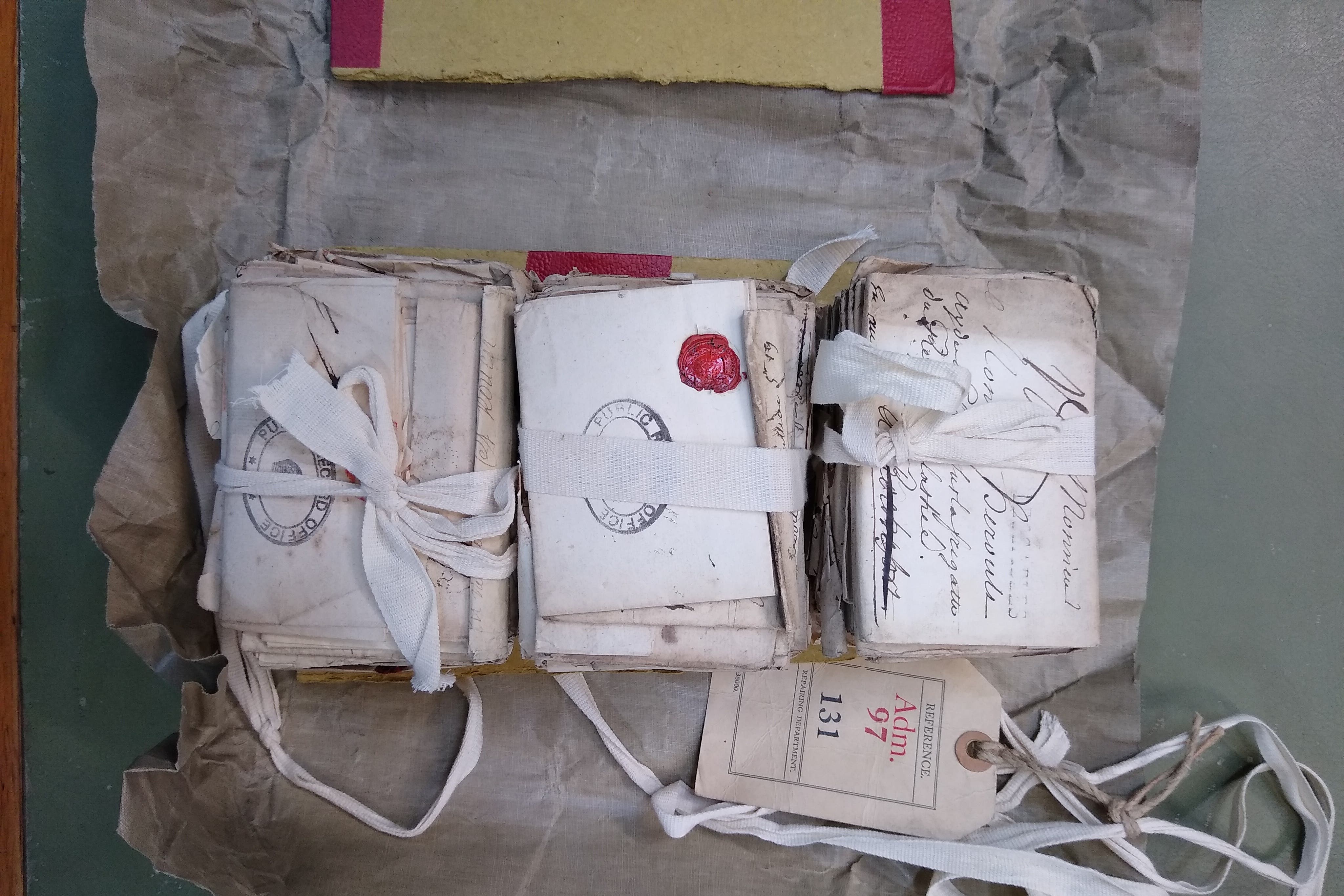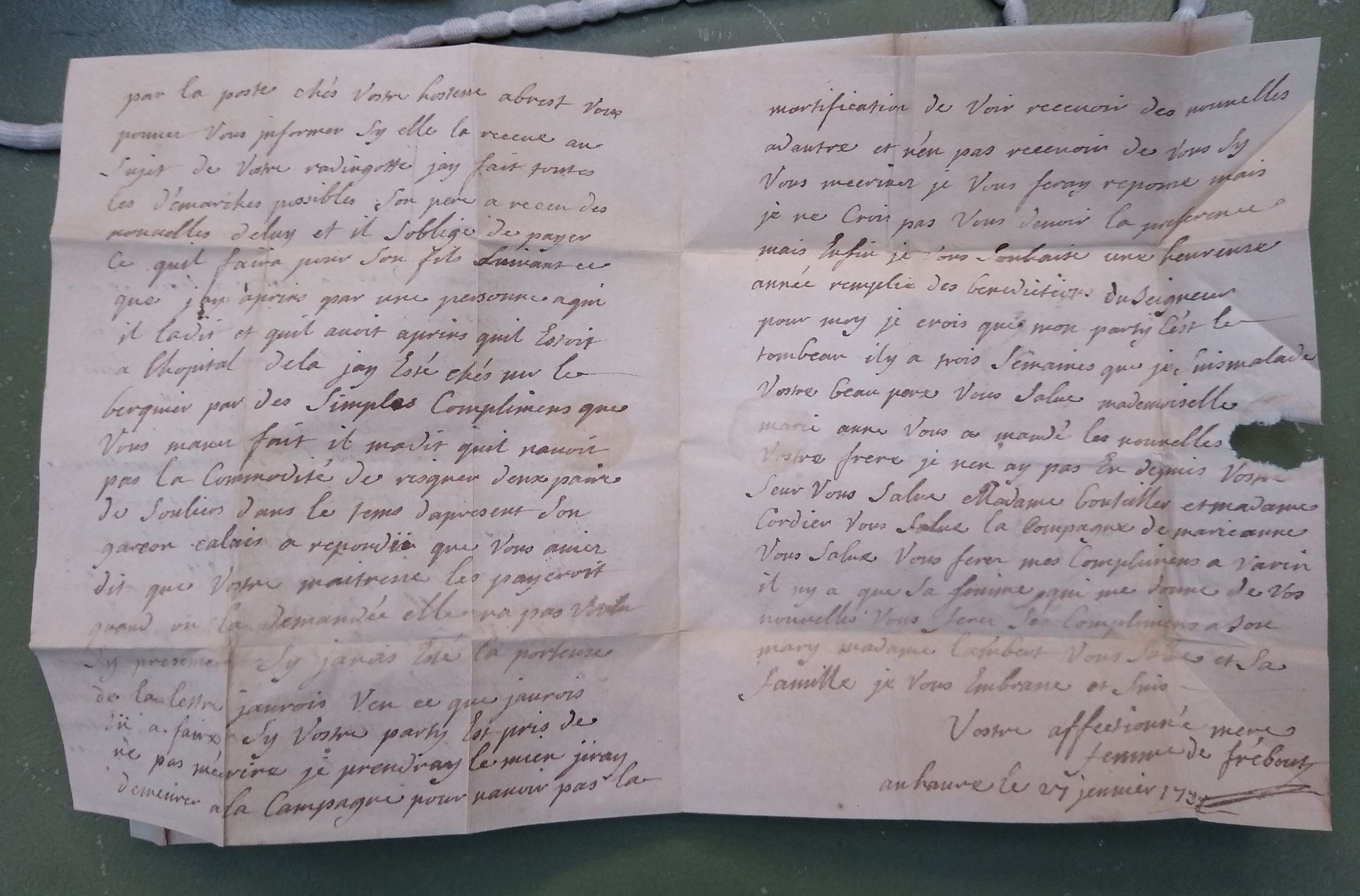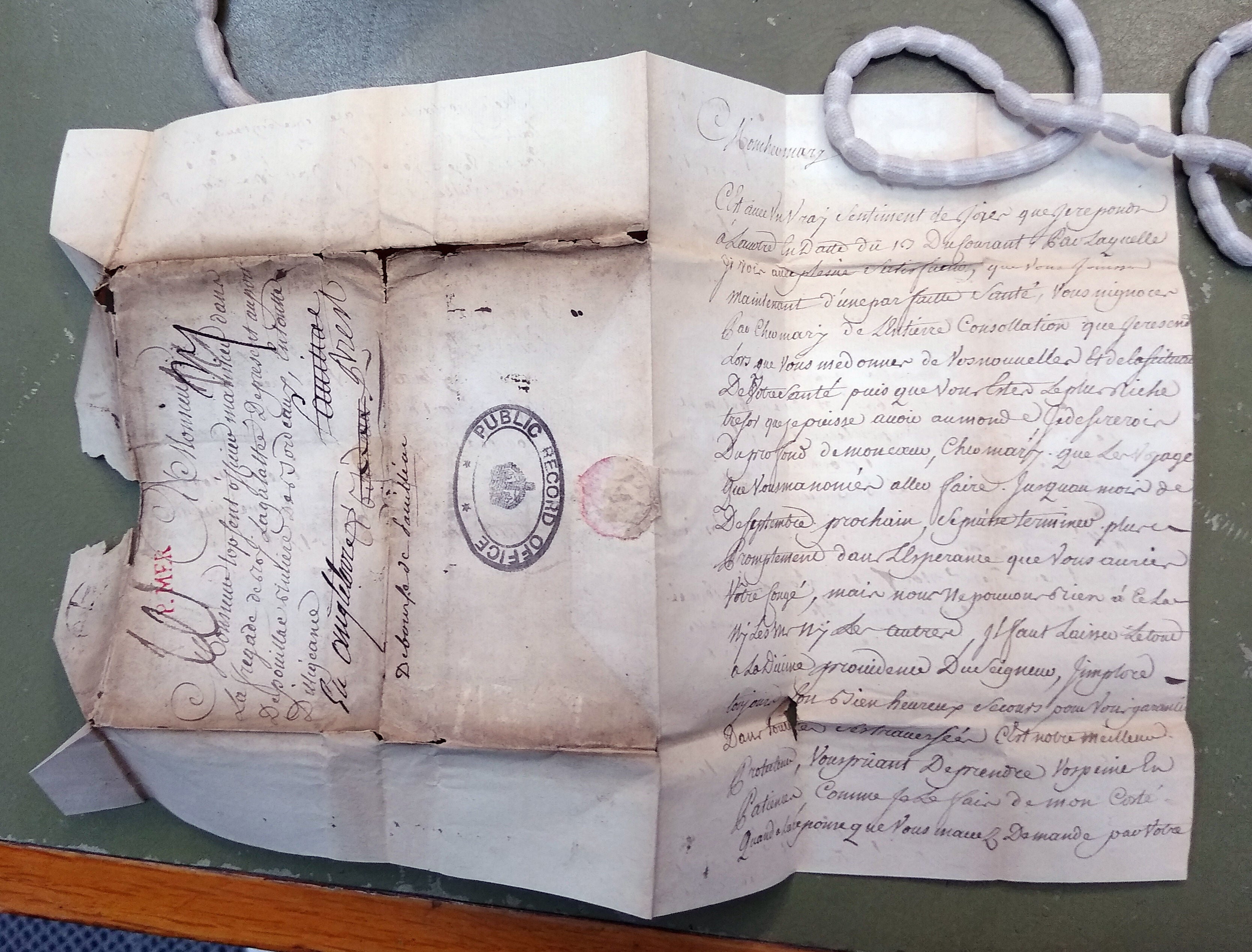Love letters written to French sailors confiscated by British 265 years ago finally opened
These notes have evolved into beautiful, if heartbreaking, reminders of ‘universal human experiences’

Your support helps us to tell the story
From reproductive rights to climate change to Big Tech, The Independent is on the ground when the story is developing. Whether it's investigating the financials of Elon Musk's pro-Trump PAC or producing our latest documentary, 'The A Word', which shines a light on the American women fighting for reproductive rights, we know how important it is to parse out the facts from the messaging.
At such a critical moment in US history, we need reporters on the ground. Your donation allows us to keep sending journalists to speak to both sides of the story.
The Independent is trusted by Americans across the entire political spectrum. And unlike many other quality news outlets, we choose not to lock Americans out of our reporting and analysis with paywalls. We believe quality journalism should be available to everyone, paid for by those who can afford it.
Your support makes all the difference.Lost letters written to French sailors in the 18th century have been opened for the first time, in a poignant reminder of the “universal human experiences” of love and longing.
The love letters were sent by the wives, mothers, and parents of crew members on-board French warship, the Galatee, during the Seven Years’ War, but were tragically confiscated by the Royal Navy before they could reach their intended recipients.
The French postal administration tried deliver these love notes by sending copies to different ports in the country for several months, hopeful they would reach the ship before it set sail again.
After it was learned that the Galatee had been captured by the British during the 1757-58 war, the post office forwarded these letters to England, where they were handed to the admiralty in London.
British authorities reportedly scanned a couple of these letters to see if they were of value to the military, but decided they only contained “family stuff” and stashed them away in storage.
Now, 265 years later, they have ended up in the hands of a Cambridge academic, Professor Renaud Morieux, who stumbled upon the collection of 104 letters at the National Archives in Kew and asked to open the box “out of curiosity”.

"I realised I was the first person to read these very personal messages since they were written,” he recalled the “emotional” experience of studying the letters, adding it was “agonising how close they got” to being delivered to the crew members.
One of these letters, addressed to the Galatee’s first lieutenant Louis Chambrelan, was from his “forever faithful wife” Marie Dubosc.
Without knowing where her husband was or anything about his safety, she wrote: "I could spend the night writing to you... I am your forever faithful wife. Good night, my dear friend. It is midnight. I think it is time for me to rest."
The couple never met each other again, with Dubosc dying the next year in Le Havre. Chambrelan remarried upon his return to France in 1761.
In a passionate declaration of love, Anne Le Cerf told her husband Jean Topsent, a non-commissioned officer: "I cannot wait to possess [translated as “embrace”] you.”

She affectionately signed the letter with her nickname as “Your obedient wife Nanette”.
This archive of letters also documents relationships between family members of the men serving in the war.
In a message sent from Normandy to Nicolas Quesnel in January 1758, the young sailor’s 61-year-old mother, Marguerite compained that “I think more about you than you about me”.
She continued: “In any case I wish you a happy new year filled with blessings of the Lord. I think I am for the tomb, I have been ill for three weeks. Give my compliments to Varin [Quesnels’ shipmate], it is only his wife who gives me your news.”
In a subsequent letters, Marguerite told Nicolas how it “hurts me greatly” when he omits any mention of his father in his replied to her. “Next time you write to me, please do not forget your father,” she admonished him.
Morieux spent months decoding the letters, written with wild spelling, no punctuation or capitalisation, and identified every member of the Galatee’s 181-strong crew, from simple sailors to carpenters to superior officers.
The letters were addressed to a quarter of them and he carried out genealogical research into these men and their correspondents to learn more about their lives than the messages alone revealed.
Reflecting on his findings, Morieux said: “These letters are about universal human experiences, they’re not unique to France or the 18th century. They reveal how we all cope with major life challenges.”
“When we are separated from loved ones by events beyond our control, like the pandemic or wars, we have to work out how to stay in touch, how to reassure, care for people and keep the passion alive,” he continued. “Today we have Zoom and WhatsApp.
“In the 18th century, people only had letters but what they wrote about feels very familiar.”
His research is published in the journal Annales. Histoire, Sciences Sociales.
Join our commenting forum
Join thought-provoking conversations, follow other Independent readers and see their replies
Comments